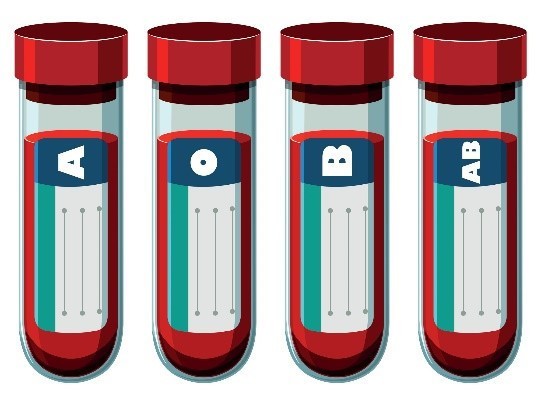The concept of tailoring your diet to your blood type has intrigued many. Popularized by Dr. Peter D’Adamo’s “Eat Right 4 Your Type” in 1996, the blood type diet suggests that individuals can optimize their health, weight, and longevity by consuming foods aligned with their specific blood type. But does this dietary approach hold scientific weight, especially for those with A positive blood type? Let’s delve into the details.
Understanding the Blood Type Diet
The blood type diet categorizes foods based on how they supposedly interact with each blood type: O, A, B, and AB. The core idea is that certain foods contain lectins, proteins that can cause agglutination (clumping) of red blood cells if they are incompatible with your blood type. This incompatibility is believed to lead to digestive issues, reduced energy levels, and increased susceptibility to disease.
Here’s a brief overview of the dietary recommendations for each blood type, according to the blood type diet:
- Type O: High-protein diet rich in meat, fish, and vegetables, with limited grains and legumes.
- Type A: Vegetarian-focused diet emphasizing fruits, vegetables, tofu, and whole grains, while avoiding meat.
- Type B: Balanced diet incorporating meat, dairy, fruits, seafood, and grains.
- Type AB: Combination of type A and B recommendations, including seafood, tofu, dairy, and vegetables.
A Positive Blood Type Food Focus
For individuals with A positive blood type, the blood type diet advocates a primarily vegetarian approach. This centers on fruits, vegetables, legumes, and whole grains.
Here’s a more detailed look at specific food recommendations for A positive blood type:
-
Beneficial Foods:
- Vegetables: Broccoli, carrots, garlic, onions, spinach
- Fruits: Berries, figs, plums, pineapple
- Legumes: Beans, lentils (in moderation)
- Grains: Oats, rice, rye
- Seafood: Limited amounts, such as salmon, sardines, trout (some proponents advise avoiding red meat and poultry.)
- Tofu and Soy Products
-
Foods to Avoid (or Limit):
- Meat: Beef, lamb, pork (although some proponents suggest eating in very limited quantities)
- Dairy: Some dairy products, such as whole milk, cheese, and ice cream (fermented dairy like yogurt or kefir may be better tolerated)
- Certain Beans: Kidney beans, lima beans
- Nightshade Vegetables: Eggplant, potatoes, tomatoes, peppers (some variations of the diet are less restrictive with these)
 A positive blood type food infographic showing healthy food choices.
A positive blood type food infographic showing healthy food choices.
Scientific Evidence (or Lack Thereof)
Despite its popularity, the blood type diet lacks robust scientific support. Numerous studies have investigated the claims made by Dr. D’Adamo, and the results have been largely inconclusive.
A comprehensive review of existing research published in the American Journal of Clinical Nutrition found no evidence to support the purported benefits of the blood type diet.
Another study published in PLOS One found that while individuals following a specific blood type diet did experience improvements in certain cardiometabolic risk factors, these improvements were not related to their blood type. In other words, people saw positive changes regardless of whether their diet matched their blood type recommendations.
The Potential Downsides of the Blood Type Diet
While the blood type diet may not be inherently harmful, it’s essential to consider potential drawbacks:
- Restrictiveness: The diet can be quite restrictive, potentially leading to nutrient deficiencies if not carefully planned. For example, severely limiting meat intake without proper supplementation could result in iron deficiency.
- Inconvenience: Adhering to a blood type diet can be challenging and inconvenient, especially when eating out or traveling.
- Cost: Sourcing specific “recommended” foods, particularly organic options, can be expensive.
- Lack of Personalization: The diet focuses solely on blood type, neglecting other crucial factors influencing health, such as genetics, lifestyle, and individual sensitivities.
A Balanced Perspective
While the concept of “A Positive Blood Type Food” might seem appealing, it’s important to approach the blood type diet with a critical and informed perspective. The current scientific evidence does not support its claims.
A more effective approach to personalized nutrition involves considering a broader range of factors, including:
- Individual Needs: Consult with a registered dietitian or healthcare professional to assess your specific nutritional requirements based on your health status, activity level, and dietary preferences.
- Evidence-Based Guidelines: Follow established dietary guidelines based on scientific research. These guidelines emphasize a balanced diet rich in fruits, vegetables, whole grains, lean protein, and healthy fats.
- Listen to Your Body: Pay attention to how different foods affect you and adjust your diet accordingly. Food sensitivities and intolerances vary widely from person to person.
Conclusion
The blood type diet, while popular, remains a controversial topic in the world of nutrition. While anecdotal evidence may suggest benefits for some individuals, rigorous scientific research has failed to validate its claims. For those with A positive blood type, focusing on a balanced, plant-rich diet is generally a healthy choice, but it’s crucial to consult with a qualified healthcare professional to develop a personalized nutrition plan that meets your specific needs and goals. Remember, a healthy lifestyle encompasses more than just diet; regular exercise, stress management, and adequate sleep are equally important for overall well-being.